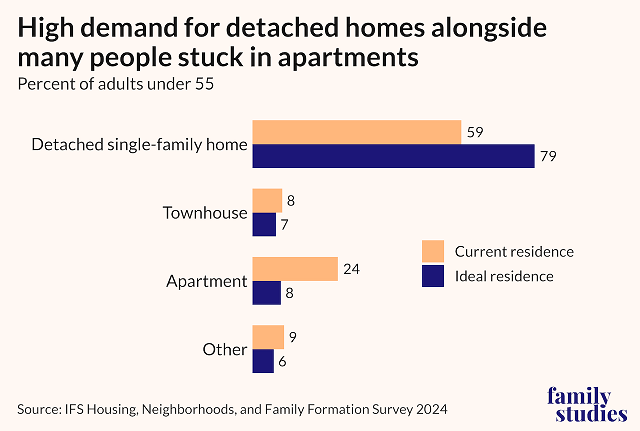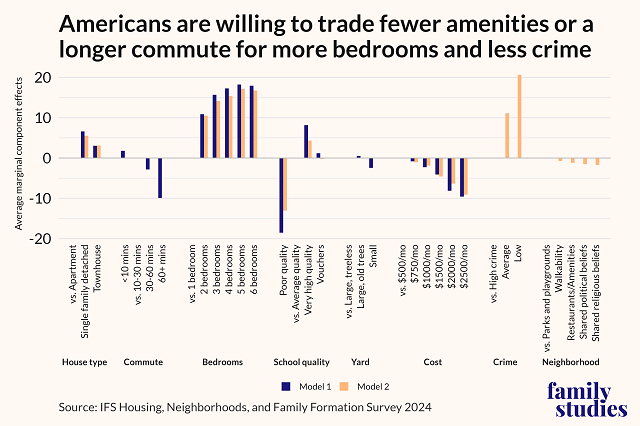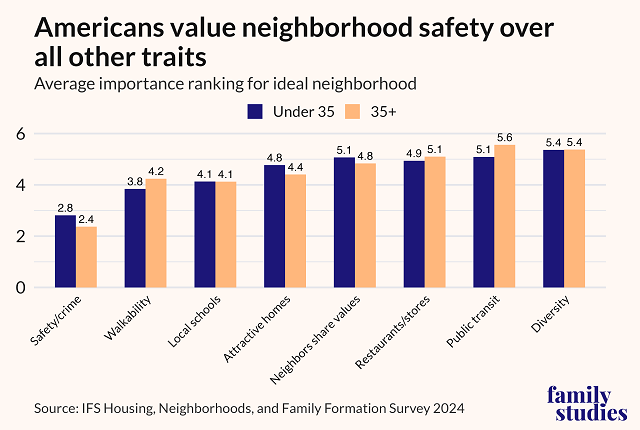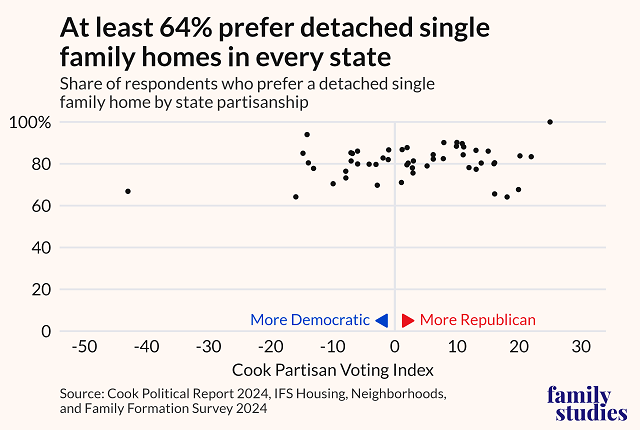Highlights
- Americans on both sides of the aisle desire single-family housing. Post This
- Our survey found a broad-spectrum rejection of apartment living across every single demographic group. Post This
- When Americans envision their family life, the difference between 2 to 3 bedrooms is more important than: extra commute time, the difference between a townhouse and detached single-family home, and any size yard. Post This
Housing is a core part of the family formation process, yet surprisingly little is known about what kinds of houses Americans want for their families. We remedy that gap in our recent report, Homes for Young Families: A Pro-family Housing Agenda, which presents evidence from a survey of nearly 9,000 Americans ages 18-54.
Today, apartments as a share of home construction are at their highest level in decades. This is concerning since almost nobody in America wants to raise a family in an apartment. In fact, our survey found a broad-spectrum rejection of apartment living across every single demographic group surveyed. So what kinds of homes do young Americans want?
Americans Want Single-Family Homes

- When asked to visualize their ideal home: 79% of respondents say detached SFH, even though only 59% are currently living in that kind of housing.
- Detached SFH are the only housing type where the proportion of respondents identifying this as ideal exceeds the proportion living in these types of homes.
Young Americans Desire Space
- When Americans envision their family life, the difference between 2 and 3 bedrooms is more important than: an extra 30 minutes of commute time, the difference between a townhouse and detached single-family home, any neighborhood amenity, and any size yard.

- Even the differences between 3 and 4, or 4 and 5, bedrooms are more important than common variances in commute time, monthly housing costs, yard size, or neighborhood amenities.
Young Americans Want Safe and Walkable Neighborhoods
After crime, the next most important neighborhood trait is walkability. In this case, walkability is separated from nearby restaurants and stores and likely means things like sidewalks, pedestrian-friendly roads, and trees for shade.

Family Aspirations Shape Housing Desires
- Respondents under age 35 in apartments average just 0.3 children, compared to about 0.6 children for those in other housing. Meanwhile, for respondents ages 35 to 54, apartment-dwellers average 1.3 children, vs. 1.6 for others.
- Homeownership is strongly tied to family ambitions. Among respondents who are not homeowners, over 90% of those who want more children desire to own homes, compared to lower rates among people who are finished having children, and much lower rates among those who are childless by choice (70%).
A Family-Friendly Housing Policy
Americans on both sides of the aisle desire single-family housing.

Because American families place low priority on big yards (even as they reject apartment life), and high priority on walkability and bedroom count, certain policy implications emerge.
- Family-friendly housing means more sidewalks with shade.
- It also means reducing minimum lot sizes and allowing accessory dwelling units for long-term residential use.
- And it involves building more efficient, single-family neighborhoods on easily-maintained lots.
- Public housing projects pouring massive amounts of money into apartment construction should be reconsidered.
- Tax Increment Financing, for apartment development, may be a policy mistake.
- “YIMBY” proposals that only deregulate building “up” with apartments rather than “out” for new neighborhoods are unlikely to support family formation.
Even as policymakers can and should remove unreasonable regulatory burdens on apartment construction where applicable, the main focus of any family-friendly housing policy should be on expanding the supply of single-family homes.
Lyman Stone is Senior Fellow and Director of the Pronatalism Initiative at the Institute for Family Studies.
*Photo credit: Shutterstock














